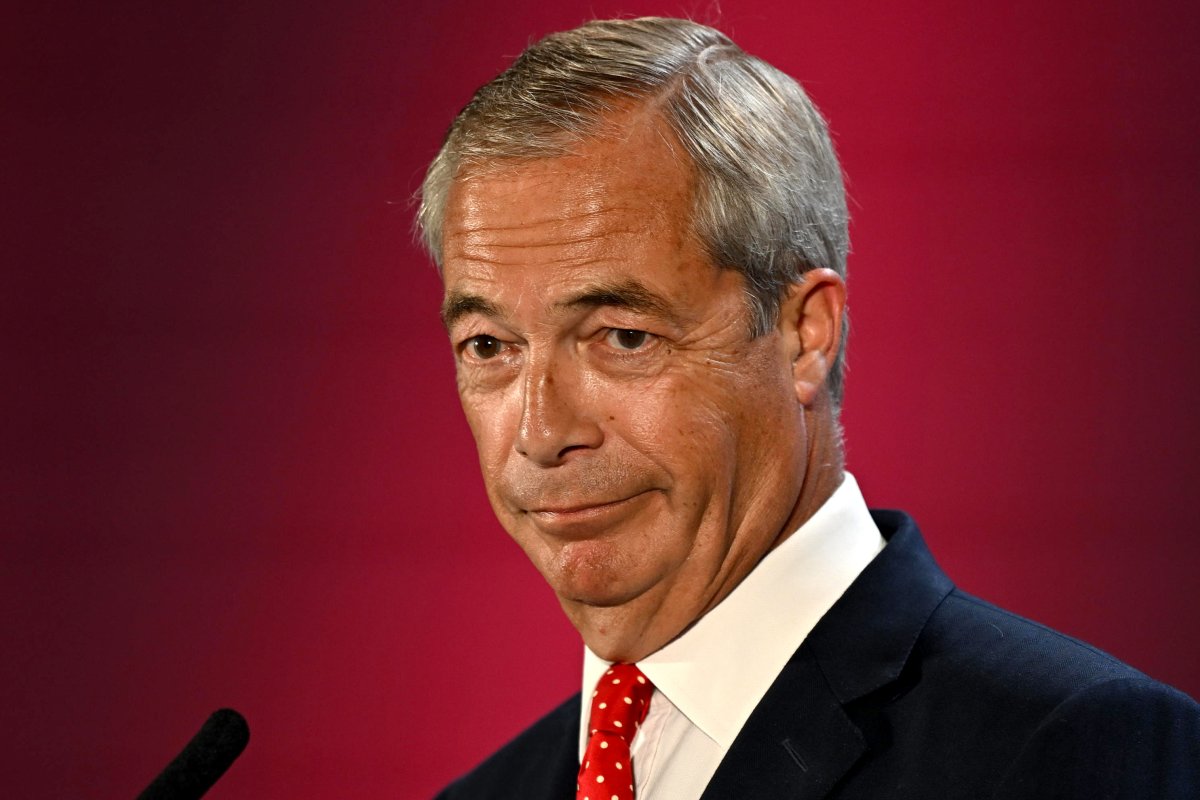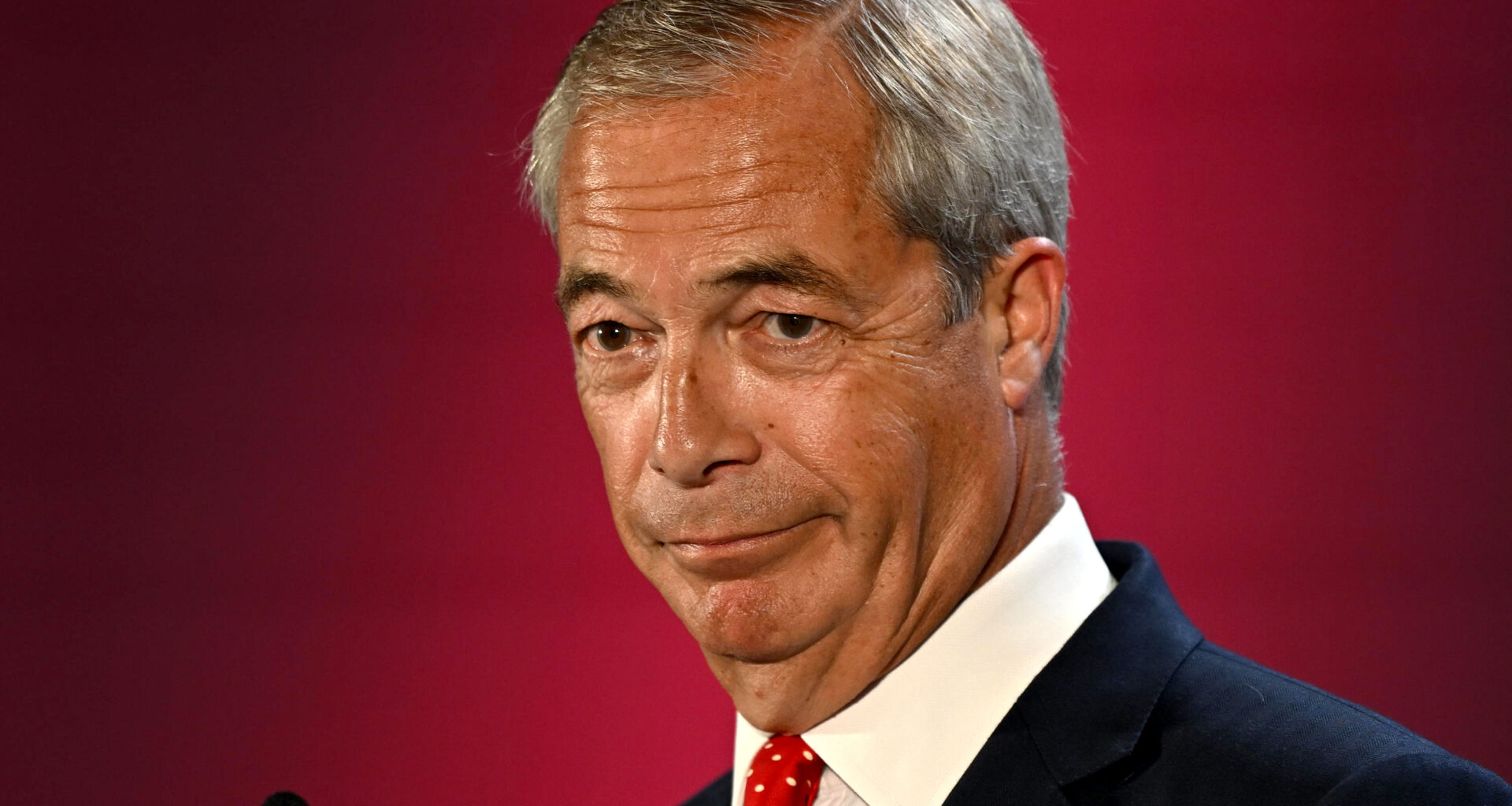British politician Nigel Farage will deliver testimony to the judiciary committee of the U.S. House of Representatives on Wednesday, warning of what he says is a decline in free speech in his native U.K.
Farage, who leads the right-wing Reform U.K. party, will speak following the arrest at a London airport of comedian Graham Linehan over social media posts he had made on the trans rights debate taking place in Britain.
He said he will also raise the case of Lucy Connolly, a woman imprisoned for incitement to violence after posting on X about setting hotels housing migrants on fire during a period of public disorder in Britain.
“Free speech is under assault in Britain,” Farage said in a post on X ahead of his appearance on Capitol Hill.
Farage is due to speak at 10 a.m. ET
Britain has “lost her way” on free speech: Farage
Trump admin has raised U.K. free speech concerns
Elon Musk adds voice to criticism of U.K.
Farage is ally of Donald Trump
Follow Newsweek for live updates.

Reform UK Leader Nigel Farage speaks on stage during the Reform UK Deportations Policy Announcement on August 26, 2025 in Oxford, England.
Reform UK Leader Nigel Farage speaks on stage during the Reform UK Deportations Policy Announcement on August 26, 2025 in Oxford, England.
Leon Neal/Getty Images
07:47 AM EDT
Why is Nigel Farage addressing a House committee?
Nigel Farage will share his views on the state of free speech in Britain, where he leads the right-wing Reform U.K. party—currently topping the polls—and serves as a member of parliament.
He will deliver his testimony to the House Judiciary Committee, which is set to hold a hearing on Wednesday, September 3, 2025, starting at 10 a.m. ET.
“The hearing will examine European threats to American free speech and innovation,” says the committee’s schedule.
“It will highlight how European online censorship laws-specifically the United Kingdom’s (UK) Online Safety Act (OSA) and the European Union’s (EU) Digital Services Act (DSA)-threaten Americans’ right to speak freely online in the United States.
“Additionally, it will explain how the UK’s Digital Markets, Competition and Consumers Act (DMCC) and the EU’s Digital Markets Act (DMA) target American companies and hurt innovation.”
As well as Farage, the other witnesses are Lorcán Price, a barrister and legal counsel for the Alliance Defending Freedom International, a conservative legal advocacy group, and Morgan Reed, president of The App Association, a British lobbyist for small tech firms.
07:33 AM EDT
Flashback: When Vance confronted Starmer at the White House
Back in February, British Prime Minister Kier Starmer pushed back against Vice President JD Vance on the issue of free speech, defending the U.K.’s record.
Vance had raised American concerns about free speech in Britain and Europe, in particular, how it could affect U.S. companies.
You can watch that White House moment between the two politicians here.
07:21 AM EDT
Nigel Farage harks to signatories of American Declaration of Independence
Sections of Nigel Farage’s written testimony to the U.S. House of Representatives were published by The Sun, a British tabloid. In it, he speaks of the British values held by the founders of the U.S.
“Free speech is a fundamentally British value,” Farage says.
“We would do well to remember that every signatory of the American Declaration of Independence was, after all, a British subject.
“On the question of civil liberties, Britain has, unfortunately, now lost her way.
“I will do my part, as a participant in U.K. democracy, to help our country find its way back to the traditional freedoms which have long bound together our two countries in friendship.
“In the meantime, Congress should draw bright lines: British free speech rules, applicable to Britons, are made in Britain, and American speech rules, applicable to Americans, are made in America.
“Somewhere on this planet of ours, innovators must remain free to build the next generation of platforms without being hamstrung by illiberal and authoritarian censorship regimes that are alien to both American and traditionally British values.
“Right now, that place is America. Those of us in the UK will do what we can to make Britain such a place as well.”
07:15 AM EDT
London police chief issues statement: “between a rock and a hard place”
Following Graham Linehan’s arrest, London’s Metropolitan Police Chief Sir Mark Rowley said his officers have been put in an “impossible position” and they should not be “policing toxic culture wars debates”.
Rowley said in a statement to the media that his officers had arrested Linehan under existing legislation, “which dictates that a threat to punch someone from a protected group could be an offence”.
However, he said he understood the concerns that have arisen from incidents such as this, “given differing perspectives on the balance between free speech and the risks of inciting violence in the real world.”
“Most reasonable people would agree that genuine threats of physical violence against an identified person or group should be acted upon by officers. Such actions can and do have serious and violent real-world implications,” Rowley said.
“But when it comes to lesser cases, where there is ambiguity in terms of intent and harm, policing has been left between a rock and a hard place by successive governments who have given officers no choice but to record such incidents as crimes when they’re reported. Then they are obliged to follow all lines of enquiry and take action as appropriate.
“I don’t believe we should be policing toxic culture wars debates and officers are currently in an impossible position.”

